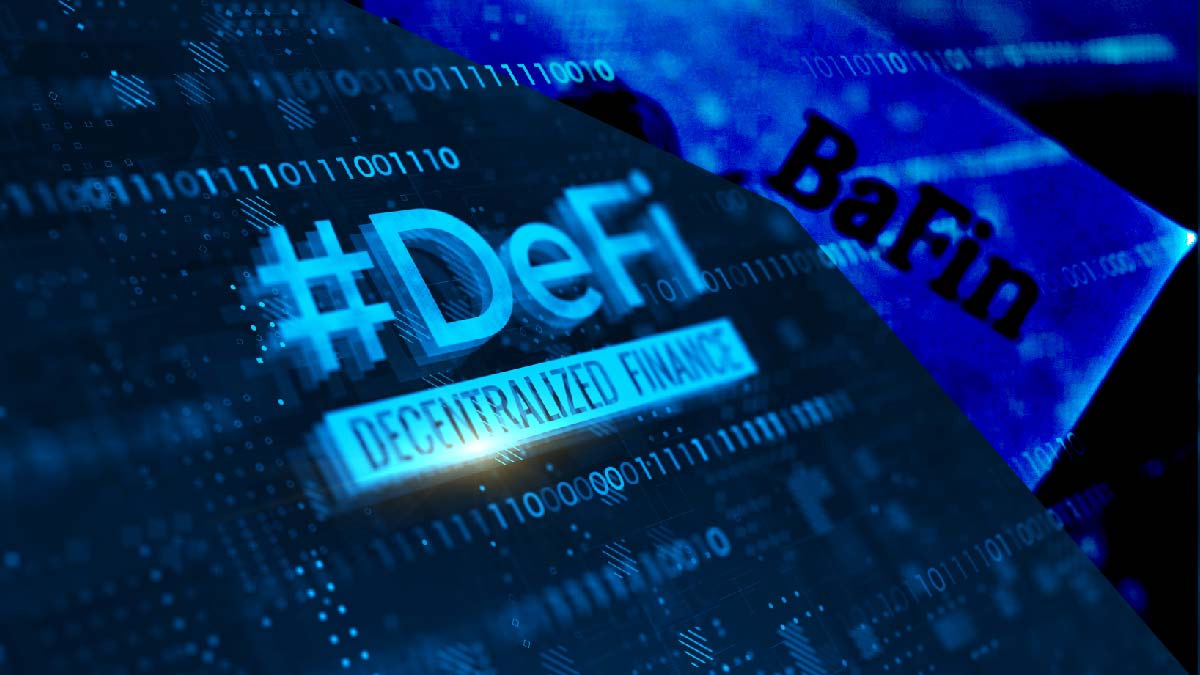Cryptocurrency
Dogecoin has its day; cryptocurrency is latest ‘meme’ craze

After fans of the cryptocurrency touted April 20, long an unofficial holiday for marijuana devotees, as “Doge Day,” Dogecoin failed to come close to the $1 target that supporters hoped to reach and was falling in late afternoon trading.
The goal may have sounded like a low hurdle, particularly when compared against the $50,000 or $60,000 that a bitcoin is worth, depending on the day. But Dogecoin has already had an astonishing ascent from the roughly half of a cent that it was fetching at the start of the year.
Dogecoin, which is pronounced dohj-coin, has already leaped to roughly 33 cents and is flirting with a 7,000% gain for 2021 so far. That towers over the roughly 10% return for the U.S. stock market, which itself is getting criticism for rising too high. Collectively, dogecoins have a total market value of about $42 billion, according to CoinDesk. That puts it in the same neighborhood as Chipotle Mexican Grill and eBay.
Supporters of Dogecoin are trying to help it shed its image as a joke cryptocurrency and get it seen as a way to make fast and easy transactions, though few retailers are accepting it so far.
It’s also attracting buyers who want to get in on the next “meme” investment after watching the stock of GameStop suddenly soar more than 1,600% in January. That surge was triggered by a band of smaller-pocketed investors communicating online, resulting in lifechanging profits for those who timed it right. And Dogecoin buyers are now using some of the same slogans, promising to take its price “to the moon,” for example.
Critics, though, say Dogecoin’s almost unbelievable rise is another example of the fever to buy the next big thing that’s been pushing prices up across investments, and that people buying in now may be setting themselves up for pain. Even cryptocurrencies that are more widely accepted and seen as serious are notoriously volatile, with huge swings in price, up and down.
“We can expect many novice retail investors — who may not have the financial resilience needed — to get burned in the Dogecoin frenzy, in the same way they did with the GameStop one,” said Nigel Green, chief executive of deVere Group, which offers financial planning and advice.
GameStop’s stock touched $483 at one point in late January, only to fall to $90 in less than a week. It has since bounced up and down, recently trading a little above $158. That’s still well above where it was before its January burst began.
Some big companies are getting involved in Dogecoin. Newegg, an online electronics retailer, said it’s celebrating #DogeDay and accepting Dogecoin for purchases through BitPay, a payment service provider.
“This isn’t a short-term move on our part,” said Andrew Choi, senior brand manager at Newegg. “We intend to offer Dogecoin as a payment option as long as we feel customer demand warrants it.”
Dogecoin’s ascent slowed on Doge Day, though. After rising above 42 cents in the overnight hours, it pulled back as the morning progressed. The drop then accelerated, and it fell 10% during a 30-minute stretch around noon Eastern time. Even before that dip, some buyers were coming into Doge Day with trepidation.
“This is like a cross between a pyramid scheme and tulip mania,” one user on Reddit, named hazardousmeme, said in a discussion about Dogecoin after another user asked if it’s a safe investment. “Safe is the absolute last thing that this is.”
“Let’s hope this goes up!” another Reddit user wrote after saying they bought $500 worth of Dogecoin. “Better than putting it into a slot machine!”
NEW YORK (AP) — By STAN CHOE
Blockchain - Cryptocurrency
Is Cryptocurrency Legal in India?

Whether making Cryptocurrency legal in India or not is still up for debate, but the Supreme Court asked the government to be very clear about its position. The national government is drafting a bill to control cryptocurrencies and other digital assets in India. In the Union Budget 2022, Finance Minister Nirmala Sitharaman announced that the federal government would impose a steep tax of 30% on virtual assets, such as cryptocurrencies and Nonfungible Tokens, or NFTs. Budget 2022 suggested creating a new section 115BBH to impose income tax on cryptocurrencies and other virtual assets in order to implement this crypto tax.
Is Cryptocurrency Legal in India?
According to finance minister Nirmala Sitharaman, taxing cryptocurrencies does not make them legal tender in the nation. The nation has the right to impose taxes on cryptocurrency transactions, and these taxes have hit the Indian crypto market hard. The finance minister stated that an official position on regulation wouldn’t be taken until the ongoing consultations were over.
The Directorate of Enforcement (ED) of the nation is making rapid progress with its investigation into any potential foreign exchange.
According to reports, the ED is looking into every aspect of the offshore transactions carried out by the Indian exchanges. The amount of domestic money that left India is being estimated by the Indian authorities, and is a big factor in whether to make Cryptocurrency legal in India or not. Transaction histories and the companies’ involvement with foreign exchanges are hidden from view for that reason.
When an assessee’s total income includes any income from the transfer of virtual digital assets, the proposed section 115BBH seeks to stipulate that the amount of income tax that is due is equal to the sum of the income tax that is due at the rate of 30% on such income and the amount of income tax that would have been due had the assessee’s total income been reduced by the sum of those incomes, according to the Budget 2022 Memorandum.
From Assessment Year 2023–2024, the recently proposed cryptocurrency tax will be in effect. In the upcoming fiscal year (2022–2023), all of your cryptocurrency-related income will be subject to a 30 percent tax rate. For FY 2021–2022, investors must pay taxes in accordance with the current tax regulations.
With this law, the Indian financial authorities have essentially clamped down on the newly emerged financial market due to fear of financial instability, especially given the recent crypto crash.
Prime Minister Narendra Modi stated in November that cryptocurrencies could “spoil our youth” after the central bank had repeatedly warned that cryptocurrencies could pose “serious concerns on macroeconomic and financial stability.”
This view on the dangers of cryptocurrencies comes, ironically enough, despite some pretty impressive statistics, and have been taken into consideration when discussing whether to make Cryptocurrency legal in India.
One of the largest and fastest-growing cryptocurrency markets worldwide is found in India. There are 15 domestic cryptocurrency exchanges in the nation.
According to industry data, there are between 15 and 20 million cryptocurrency owners in India, with estimated holdings worth $6 billion (€5.31 billion).
Despite this, the Indian cryptocurrency market remains under stringent scrutiny that appears to persist for the foreseeable future.
Inside Telecom provides you with an extensive list of content covering all aspects of the tech industry. Keep an eye on our Technology and Blockchain sections to stay informed and up-to-date with our daily articles.
Cryptocurrency
How Facebook’s Cryptocurrency Venture Fell to its Demise

Surely, we all remember that one time when Facebook tried to enter the cryptocurrency world to expand its influence into the decentralized universe of cryptocurrency and blockchain. But those familiar with Facebook’s cryptocurrency venture also know that the dream did not even come close to fruition. Why? Let’s just start by saying many factors led to its unfortunate doomed fate, which was put into question from the get-go, but the main one has to be the project’s failure to secure the satisfaction of federal regulators.
Facebook Crypto Coin
In its first uncovering of its ambitious venture, the initial Facebook cryptocurrency name was Libra, which later on was changed, and the crypto coin was dubbed the name Diem. A term that could mean “carpe diem,” referring to the urge to make the most of the present time and not considering the thought and consequences of the future.
Seems quite fitting, given the project lasted only during its present time, did not see the light of day, and never reached its future endeavors. This can mainly be attributed to the heavy federal discontent of federal regulators and global finance officials, leading to its imminent failure in such a short period of time.
Originally, Facebook’s cryptocurrency venture was announced as a stablecoin with a value pegged to real-world assets, similar to worldly fiat currencies. The Facebook Libra cryptocurrency was intended to be adopted as a basic global currency with sparse fees, playing the role of digital money on your phone, used to pay any purchase supported by cryptocurrency. The overtone of this factor means that if the project had seen the light of day, it would’ve had its own monetary power, placing it in direct competition with the fiat currencies, such as the U.S. dollar. An element that brimmed fear into financial officials, pushing federal regulators to impose some form of authority on the project and its success to prevent any impact on the financial system’s sustainability and the overall control imposed by global central banks over money.
The Duel for Existence
The cryptocurrency of Facebook has been fighting for its existence since day one. Bombarded with deep discontent from the regulatory gaze and central bankers driven by fears that it would endorse illegal endeavors such as money laundering and privacy infringement and present itself as potential competition for global currencies’ sovereignty.
Following the regulatory scrutiny, the Facebook coin Libra was exposed to an endless chain of various ownerships, ending with a wave of migration of many corporate partners and high-level executives. The project, which Facebook’s Chief Executive Officer (CEO) Mark Zuckerberg hoped would change the world’s financial ecosystem, was soon faced with Washington’s rejection, particularly that of the Chair of the Federal Reserve and the Treasury secretary.
From there, the Big Tech giant’s respectable prestige was smeared to the ground during Zuckerberg’s testimony on Capitol Hill as he was playing all his cards to protect the name of the project. Yet the controversies of Facebook breaching Its users’ data privacy, spreading misinformation, and failing to provide robust censorship on its platform affected the stability of the project. Not to mention the fact that some of the biggest financial companies backing the project forsook, such as Mastercard, Visa, and PayPal. Then, followed by the head of Meta’s Cryptocurrency efforts, David Marcus announcement to abandon his responsibilities on the project.
With that in mind, the chain broke, and an overflow of criticism broke unto the project, with U.S. President Joe Biden expressing that he was never really a fan of the social media giant’s CEO and highly ranked Republicans and Democrats voicing their agitation with the Diem project.
Summary
The rippling effect of executives leaving Facebook’s cryptocurrency venture and politicians directing their wrath on the venture’s parent company left the Facebook coin, Libra, in a state of limbo for a while, which eventually led to Its demise. While there were many factors that contributed to its failure, the one thing that accentuated Its doomed fate is that the idea was envisioned by Facebook. The one thing that would’ve contributed to its eminent success, turned out to be the only thing catalyzing Its calamity.
Inside Telecom provides you with an extensive list of content covering all aspects of the tech industry. Keep an eye on our Cybersecurity section to stay informed and up-to-date with our daily articles
Cryptocurrency
German Financial Authority BaFin Calls for Unified DeFi EU Regulation

Executive director of Germany’s Federal Financial Supervisory Authority (BaFin), Birgit Rodolphe, has appealed for novel and comprehensive regulation of the decentralized finance (DeFi) sector across the European Union and to create a consistent DeFi EU regulation.
BaFin is Germany’s financial regulator, in charge of overseeing banks, insurance companies, and other financial organizations, which includes everything related to cryptocurrencies. BaFin is responsible for issuing “crypto custody licenses,” which are essential for companies wishing to provide bitcoin services in Germany.
Rodolphe made a point of the risks presented by an uncontrolled DeFi area to consumers in an article on BaFin’s website, calling for a uniform regulatory framework throughout EU member countries.
“One thing is clear: the clock is ticking. The longer the DeFi market goes unregulated, the greater the risk for consumers, and all the greater is the danger that critical offers that have systemic relevance will establish themselves.” Rodolphe stated.
She listed “technical issues, hacks, and fraudulent activity” as threats to consumers, claiming that DeFi isn’t as “democratic and altruistic” as its proponents believe and that DeFi products and systems are “difficult for many to grasp.” She came to the conclusion that DeFi protocols cannot function outside of rules just because they employ new technologies and claim to be outside the reach of law and governance or believe themselves to be self-governing.
Rodolphe lamented that the deregulated and chaotic DeFi, crypto, and NFT spaces had left many missing their financial livelihood. This is especially true now amid the biggest crash in crypto history that saw otherwise safe financial decisions brought low, with livelihoods lost and DeFi projects abandoned.
It is true that those who lose in the wild west, that is, the crypto market have no one to turn to when things go wrong, when assets disappear, wallets are hacked, or deposits are lost.
She went on to say that lending, borrowing, insurance, and other goods outside of the traditional financial system are all subject to license and supervision in the states where they’re sold, and she urged authorities to establish standards that will give DeFi providers legal certainty.
Rodolphe cited BaFin’s “crypto custody business” license, which allows businesses to provide cryptocurrency services in Germany.
The license was which was launched in January 2020 as an “attractive” regulatory framework for crypto enterprises. Only four crypto service providers have been licensed so far, but numerous financial institutions have applied.
Rodolphe wrote that regulatory systems in different European countries should be the same and help form a unified DeFi EU regulation.
“Ideally, such requirements would of course be uniform throughout the EU in order to prevent a fragmented market and to leverage Europe’s entire innovation potential.” She emphasized.
Rodolphe drew the conclusion that new DeFi laws mustn’t be weaker than the existing standards for traditional financial goods, as this might make DeFi products more appealing to businesses from a regulatory standpoint.























